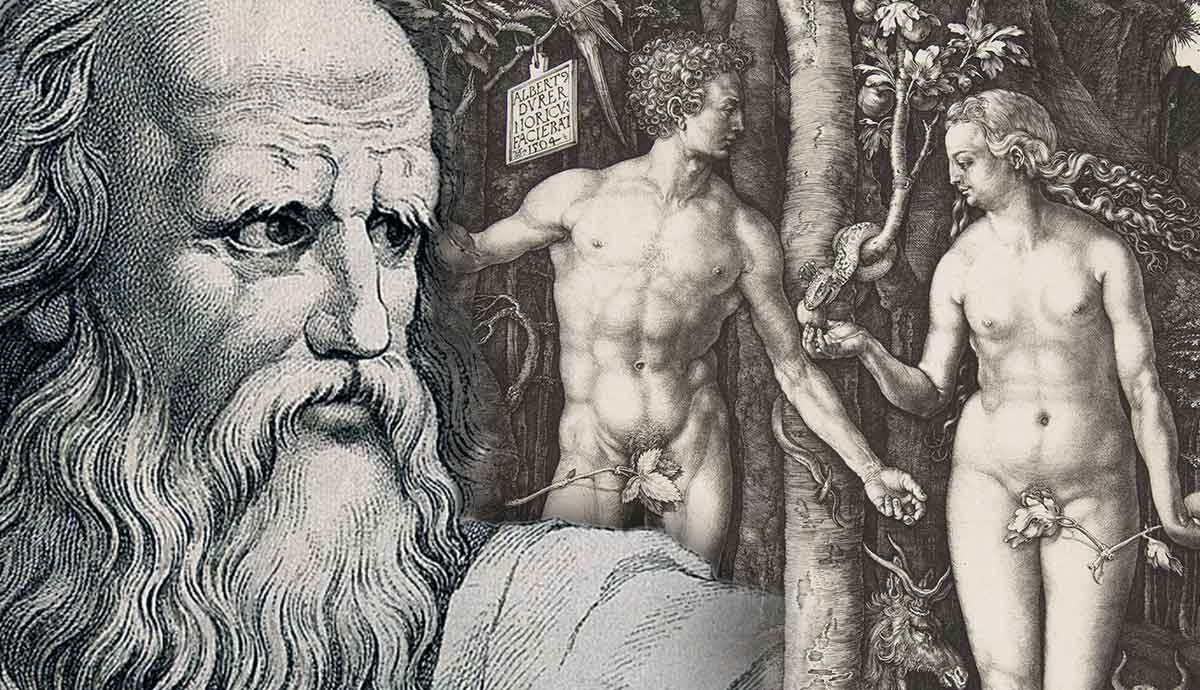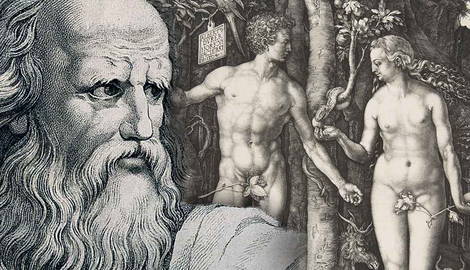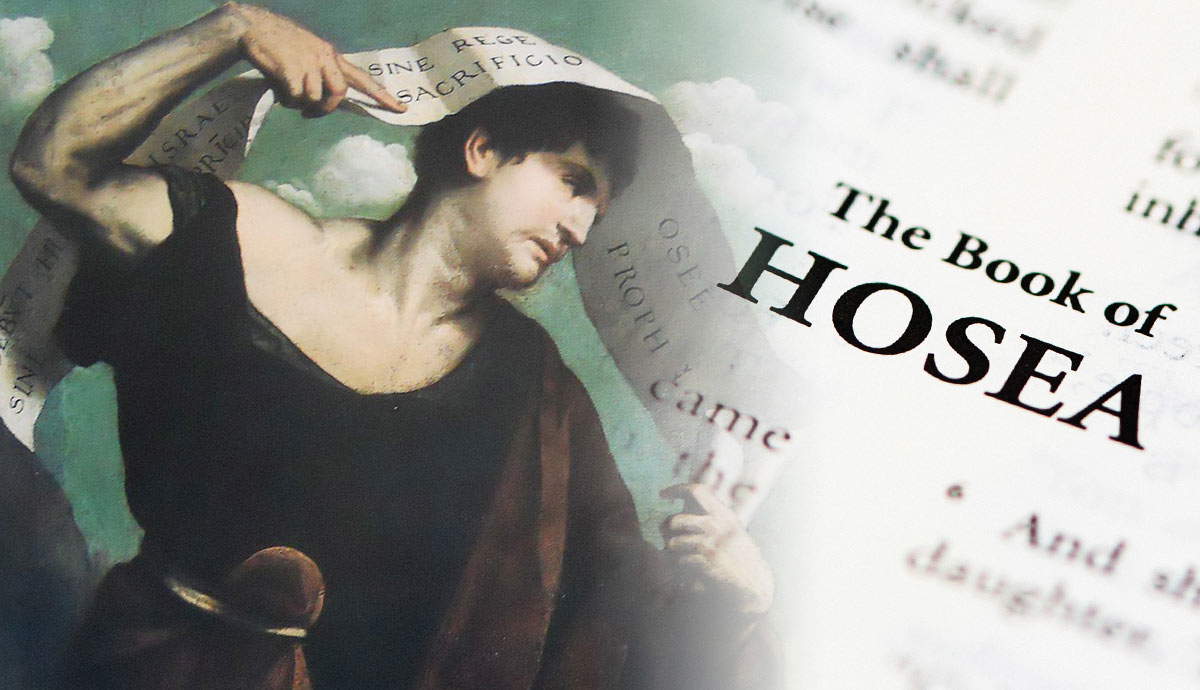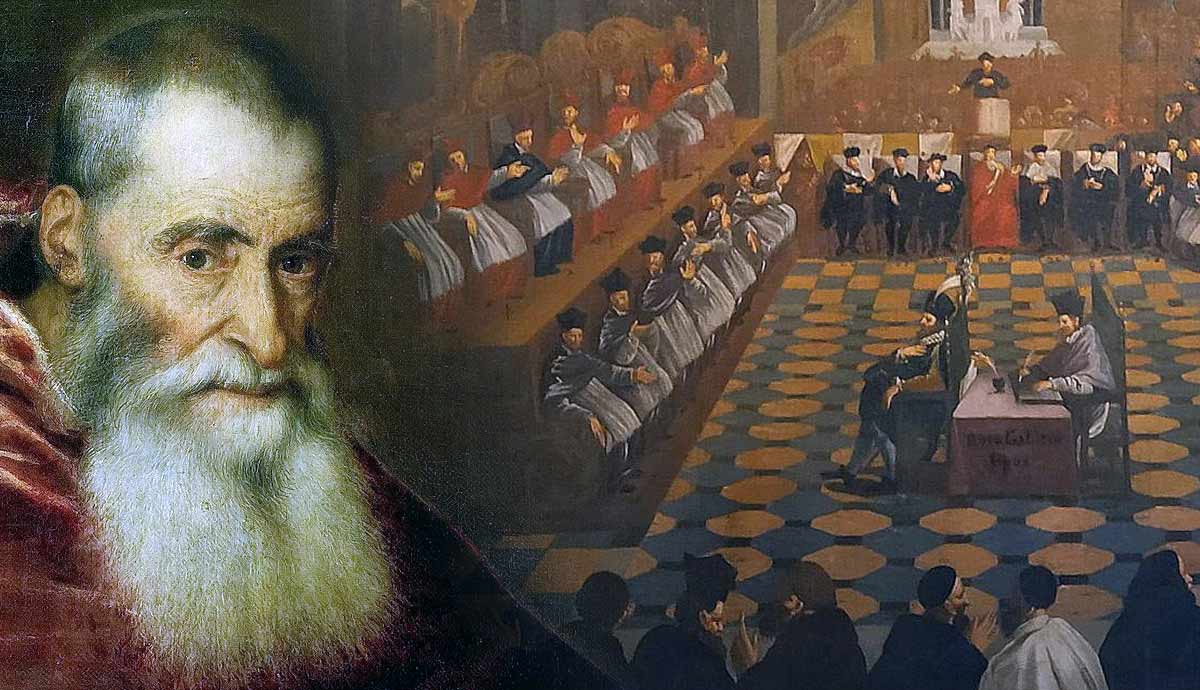
Plato played an important role in the works of several Church Fathers as they defended the truth claims of Christianity in the early centuries. The writings of Church Fathers like Justin Martyr, Clement of Rome, and Origen demonstrate how Plato was used to synthesize Christianity and Greek philosophy. In a time where worldviews clashed violently—and sometimes ended with bloodshed—the early fathers and apologists did what they could to defend the truth claims of the Christian faith while appeasing the criticisms of pagan culture.
The Time of the Ante-Nicene Fathers

Christianity spread like wildfire throughout the Roman empire leading up to the destruction of Jerusalem in 70 CE. The New Testament documents came to an end with the death of the last apostles near the end of 90–100 CE but those who were mentored by the apostles continued to carry on the Christian message. This time period, shortly after the death of the last apostles is typically referred to as the era of the ante-Nicene fathers (approximately 100–325). During the Ante-Nicene Period, the Christian message was met with resistance on many sides. Rome dispensed with those who opposed the emperor worship of the day, especially those who claimed there was another kyrios (Lord) that was not Caesar. The Christian confession of Iēsous Kyrios (Jesus is Lord) incited severe persecution by Rome. Not only that, but Christianity was also under fire from leaders teaching contrary doctrine to that of the apostles. The chief contender against the early Christian faith was Gnosticism.
In a time when there was no instant messaging or photocopying, information traveled slowly from one place to another. Questions about the nature of Jesus, for instance, could not be instantly hammered out in an evening by those distant from the successors of the apostles and the apostolic documents.
To further complicate matters, not everyone possessed all of the apostolic documents of the New Testament in a handy volume bound in leather. Hence, the time was ripe for creative solutions to difficult problems posed by the pagan world. Not only were answers sought after, but they were also much needed for those holding to their faith in the face of persecution.
Plato’s Effect on the Early Church

In the midst of these complicated times, many were coming to believe the Christian message because of its ability to meet the intellectual challenges of the day. Answers could be found by synthesizing Christian teachings and Greek philosophy, and many early Church Fathers defended the faith through this synthesis.
Plato has often been considered a sort of poster child for Greek philosophy as a whole, and several Church Fathers made much use of his work to defend the Christian message against Roman persecution and Gnostic promulgations. Plato’s influence is clearly seen in the works of the following Church Fathers.
Justin Martyr (c. 100–165 CE)

As a Christian, Justin’s main concern was “to have men recognize Jesus as the true Logos by the Greeks and at the same time as the predicted Messiah by the Jews” (Van Til and Sigward, 1997).
As a man well-educated in the philosophies of his day, Justin Martyr was uniquely equipped to meet the intellectual challenge of unbelieving thought and give a defense of Christianity. His method for defending Christianity relied heavily upon synthesizing Christianity with Greek philosophy. Defending the faith against Rome’s false charges of atheism, Justin writes:
“And so, too, Plato, when he says, ‘The blame is his who chooses, and God is blameless,’ took this from the prophet Moses and uttered it. For Moses is more ancient than all the Greek writers. And whatever both philosophers and poets have said concerning the immortality of the soul, or punishments after death, or contemplation of things heavenly, or doctrines of the like kind, they have received such suggestions from the prophets as have enabled them to understand and interpret these things. And hence there seem to be seeds of truth among all men; but they are charged with not accurately understanding [the truth] when they assert contradictories”
(Justin Martyr, ca. 155–157/1885, p. 177).

Justin believed the Greeks were very close to the truth with respect to God. This is clearly seen in how he views the impersonal “God” of Plato. Van Til notes that the God of Plato is “nothing more than a vague idea that somehow eternally existent matter is molded by as it is attracted to form” (1997). Not realizing this, Justin assumes that when Plato speaks of the creation of the cosmos, he has the biblical view of creation in mind (Van Til and Sigward, 1997). We see this in Justin’s First Apology, where he writes with respect to Plato’s God, “And that you may learn that it was from our teachers… that Plato borrowed his statement that God… made the world, hear the very words spoken through Moses” (ca. 155–157/1885).
After citing Genesis 1:1-3, Justin concludes, “So that both Plato and they who agree with him, and we ourselves, have learned, and you also can be convinced, that by the word of God the whole world was made out of the substance spoken of before by Moses” (Justin Martyr, ca. 155–157/1885). Hence for Justin, there is no distinction between the God of the Bible and the God of Plato; what Plato taught about God is synonymous with what Moses taught.
But where do we see Plato’s most significant impact upon Justin Martyr? It lies in one crucial, yet often overlooked, presupposition: the autonomy of man in choosing to do what is right.

Orthodox Christian doctrine teaches that humanity has no ability to act rightly with respect to God. Greek philosophy, on the contrary, presupposes that humanity has the ability to act rightly in various ways and through various means. Van Til summarizes Justin’s position nicely when he writes, “He [Justin] did not see that the philosophy of such men as Plato is based on the monistic assumption that man is not a creature of God but is a participant in the very being of God” (1997).
Against the creator-creature distinction taught by the Bible, Justin inadvertently ascends to the “monistic assumption” of Plato by attempting to synthesize Christianity with Greek Philosophy. While influential to Christianity in many respects, Justin Martyr never broke ties with Plato in his philosophy of Christianity.
Clement of Alexandria (c. 150–215 CE)

Clement lived and defended the faith in a highly literate and well-educated society. His method for defending the faith was much more winsome than confrontational and focused primarily on meshing the best of ancient pagan philosophy and literature with Christianity (Payton, 2013). It has been said that Clement operated on the theme “that the world was prepared by Greek philosophy for the Christian religion” (Tollinton, 1914, as cited in Van Til and Sigward, 1997). As a result, it is no surprise that there are similarities between Clement and Plato like those of Justin Martyr and Plato.
Most significantly, we see Plato’s effect on Clement through his theory of knowledge in Stromata. In explaining how first principles are not rationally demonstratable, Clement writes, “Now, either all things require demonstration, or some of them are self-evident. But if the first, by demanding the demonstration of each demonstration we shall go on ad infinitum; and so demonstration is subverted” (Clement of Alexandria, ca. 198–203/1885, p. 559). Clement recognizes that some first principle must account for all demonstrable things, otherwise, the demonstrations of demonstrations would extend back infinitely and indefinitely. Like Plato, Clement seizes this first principle not by a rational demonstration but by faith.

It is from this launching point that he goes on to explain the rational basis for the Christian faith. Again, Van Til summarizes the thrust of Clement’s view when he states, “The prevailing view of Clement is that the Greeks knew the true God but knew him less perfectly than do Christians who have a fuller revelation than had the Greeks” (1969).
The leap of faith Clement makes to rationalize Christian teaching is the same leap of faith Plato makes in beginning his rationalization of the Ideal world. Though the substance of what is believed is different between Clement and Plato, the same act of faith is executed by both in order to make sense of their respective worldviews.
Origen (c. 185–254 CE)

Origen comes on the heels of Clement in church history. Unlike his predecessors, Origen’s platonic influence is clearly seen with little obstruction within his writings.
“Like Clement, who adduced many parallels between Greek philosophy and Scripture, Origen explicitly states that Plato taught the same truths as the Bible, perhaps because he came into contact with the ‘Jewish philosophy’, and ranks Plato as the best of philosophers, the closest to the scriptural doctrine (Cels. 1.10). Origen deeply respects Plato’s style and noble philosophy, appreciates Plato’s criticism of ‘pagan’ mythology as unworthy of the divinities, and agrees with Celsus that Plato’s Socrates taught the same as Jesus did about turning one’s cheek to offenders. Origen explicitly agrees with Plato on the inexpressibility of the supreme Good in the Seventh Letter, and praises Plato as inspired by God. Like most Neoplatonists, Origen identifies Plato’s Good with God, and insists that all good ideas in philosophy depend on inspiration by the Logos”
(Ramelli, 2022).
Origen was motivated to destroy Gnosticism and to give philosophy a recognized seat in the church creeds. In doing this, he earned himself a reputation that was “both interesting and problematic by Platonists and Christians alike” (Ramelli, 2022, p. 216). His approval of and tolerance for Plato and his philosophy shows that he never grasped the real antithesis between the Greek philosophy of his day and the Christian religion he professed to hold.
Plato’s Effect on Church History

The writings of those previously mentioned clearly demonstrate that Plato had a major influence on the early church. But how far did this influence go? Is Christianity simply a baptized Platonism? Plato’s influence is surely still seen in modern movements like Christian Platonism, but to conclude wholesale that Plato’s influence on the early church resulted in an inseparable mixture of platonic philosophy and Christian doctrine would be a grave overstatement.
Firstly, free access to information in today’s world allows us to parse out Plato and Christianity in ways the early Church Fathers could never have done. Who knows what these Church Fathers would have written had they had the same access to today’s information. As a result of this, we can clearly distinguish which aspects of Platonism and Christianity share similarities and which aspects are completely different.
More importantly, Plato’s influence upon the early church gave Christianity the kind of stress it needed to formulate its own positions with regard to metaphysics, epistemology, and ethics. Looking back upon the early Church Fathers, we can see where their use of Plato compromised the very foundations that allow for the possibility of knowledge.
Philosopher-theologians of later centuries (e.g., Cornelius Van Til, 1895–1987) have been able to learn from the mistakes of their forerunners and properly expound a rigorous Christian philosophy that answers the pagan world—including Plato—in ways the Church Fathers could have only dreamed of. In the final analysis, Plato’s influence upon the early church more than helped firm up the articulation of Christianity in the face of paganism in later centuries.
Bibliography
Brooks, J. A. (1969). The Text and Canon of the New Testament. In C. J. Allen (Ed.), Matthew–Mark. Broadman Press.
Clement of Alexandria. (1885). The Stromata, or Miscellanies. In A. Roberts, J. Donaldson, & A. C. Coxe (Eds.), Fathers of the second century: Hermas, Tatian, Athenagoras, Theophilus, and Clement of Alexandria (Entire) (Vol. 2). Christian Literature Company. (Original work published ca. 197–203).
Haykin, M. A. G., ed. (2022). The essential Lexham dictionary of church history. Lexham Press.
Inge, W. R. (1908–1926). Alexandrian Theology. In J. Hastings, J. A. Selbie, & L. H. Gray (Eds.), Encyclopædia of Religion and Ethics: Vols. I–XIII. T. & T. Clark; Charles Scribner’s Sons.
Justin Martyr. (1885). The First Apology of Justin. In A. Roberts, J. Donaldson, & A. C. Coxe (Eds.), The Apostolic Fathers with Justin Martyr and Irenaeus (Vol. 1). Christian Literature Company. (Original work published ca. 155–157).
Oliver, S. A. (2016). Platonism, Christian. In M. Davie, T. Grass, S. R. Holmes, J. McDowell, & T. A. Noble (Eds.), New dictionary of theology: Historical and systematic (Second Edition). Inter-Varsity Press; InterVarsity Press.
Payton, J. R., Jr. (2013). A patristic treasury: Early church wisdom for today. Ancient Faith Publishing.
Ramelli, I. L. E. (2022). Unity around a Teacher: Clement and Origen of Alexandria. In I. L. E. Ramelli, J. A. McGuckin, & P. Ashwin-Siejkowski (Eds.), T&T Clark handbook of the early church. T&T Clark.
Van Til, C. (1969). A Christian theory of knowledge. Presbyterian And Reformed Publishing Company.
Van Til, C., & Sigward, E. H. (1997). The articles of Cornelius Van Til (Electronic ed.). New York.








